January
Big Food Group meets Londis’s advisors, KPMG, to discuss a bid. BFG announces departure of Iceland MD Mike Coupe. Tesco stuns convenience world by buying Adminstore. The City raises concerns about Morrisons’ ability to integrate Safeway. Meanwhile, United Biscuits axes Shoks, signalling a difficult year for NPD.
February
Farmfoods tops The Grocer Top 50 but takeover frenzy continues as CJ Lang buys AJ Gillespie and Sainsbury swoops on Bells. OFT admits in its long-awaited report on the supermarket code of practice that it is powerless to help suppliers if they are not prepared to stand up and be counted. Birds Eye ditches its gull logo.
March
Bidding war for Londis begins in earnest and Musgrave emerges as front-runner. Morrisons’ takeover of Safeway is finally completed and the OFT waves through Tesco’s takeover of Adminstore. Safeway’s Kevin Hawkins is announced as new director general of the BRC. And Coca-Cola pulls Dasani off the shelves.
April
Morrisons puts Safeway staff out of their misery confirming 200 buyers and 200 in other divisions will go. As the health and obesity debate steps up a gear, culture secretary Tessa Jowell tells food and drink industry to take its responsibilities seriously. FSA launches campaign urging consumers to watch salt intake.
May
Somerfield ditches Kwik Save brand in Scotland. Sainsbury appoints former T&S chief executive Jim McCarthy as head of convenience. And public health minister Melanie Johnson tells industry to do more about obesity. Meanwhile Nestlé makes first foray into low-carb arena with the launch of low-carb Kit Kat and Rolo.
June
Entrepreneur Philip Green begins to stalk Marks & Spencer. But new boss Stuart Rose resists his overtures in what became a virtual bidding war and launches a review of the M&S business. Asda is Britain’s cheapest in The Grocer 33. Retailers vote in favour of Musgrave’s takeover of Londis. Sainsbury issues profit warning.
July
Stuart Rose decides less is more is the new mantra at M&S’s food division as he issues suppliers with demands for a 1.25% discount off invoice prices. Green furiously withdraws his indicative bid. And at Sainsbury’s agm, a row erupts over Sir Peter Davis’s pay-off. Meanwhile, the government wages war on binge drinking.
August
The acquisition frenzy peaks with Morning Noon & Night, Jacksons and Leathley’s Quality Fare all exiting The Grocer Top 50. The power of the supermarkets is called into question as it is revealed they are taking almost 50p in every pound spent in retail. Tesco opens its first Express store in Northern Ireland.
September
The Co-operative Group embarks on a radical supply chain overhaul as Malcolm Hepworth bows out. Sainsbury sheds yet more senior managers and chief executive Justin King continues to draw flak from the City as speculation begins to mount of a takeover bid. The Grocer launches its Junk the Spin campaign.
October
Public health minister Melanie Johnson hints government will foist a traffic-light labelling system on the industry. Sainsbury asks for a 1% reduction in invoice prices from suppliers. Merrill Lynch analysts Andrew Fowler and John Kershaw are suspended after revealing JS “helpfully pointed out their forecasts were too high”.
November
Public Health White Paper throws down gauntlet to the industry and gives the green light to “signposting foods”. Christmas discounting war on booze starts with prices cut by up to 40%. M&S gives foodhalls deli makeover. Tesco’s Ken McMeikan heads to Sainsbury. And Tesco jumps on low-carb bandwagon with Carb Control range.
December
C-stores call on Office of Fair Trading to launch an official inquiry into the business terms the Post Office offers them. Former Iceland boss Malcolm Walker poised to return to the helm of Iceland if Baugur successful in bid for Big Food Group. And the final audit of the supermarket code of practice is passed to the OFT.
Big Food Group meets Londis’s advisors, KPMG, to discuss a bid. BFG announces departure of Iceland MD Mike Coupe. Tesco stuns convenience world by buying Adminstore. The City raises concerns about Morrisons’ ability to integrate Safeway. Meanwhile, United Biscuits axes Shoks, signalling a difficult year for NPD.
February
Farmfoods tops The Grocer Top 50 but takeover frenzy continues as CJ Lang buys AJ Gillespie and Sainsbury swoops on Bells. OFT admits in its long-awaited report on the supermarket code of practice that it is powerless to help suppliers if they are not prepared to stand up and be counted. Birds Eye ditches its gull logo.
March
Bidding war for Londis begins in earnest and Musgrave emerges as front-runner. Morrisons’ takeover of Safeway is finally completed and the OFT waves through Tesco’s takeover of Adminstore. Safeway’s Kevin Hawkins is announced as new director general of the BRC. And Coca-Cola pulls Dasani off the shelves.
April
Morrisons puts Safeway staff out of their misery confirming 200 buyers and 200 in other divisions will go. As the health and obesity debate steps up a gear, culture secretary Tessa Jowell tells food and drink industry to take its responsibilities seriously. FSA launches campaign urging consumers to watch salt intake.
May
Somerfield ditches Kwik Save brand in Scotland. Sainsbury appoints former T&S chief executive Jim McCarthy as head of convenience. And public health minister Melanie Johnson tells industry to do more about obesity. Meanwhile Nestlé makes first foray into low-carb arena with the launch of low-carb Kit Kat and Rolo.
June
Entrepreneur Philip Green begins to stalk Marks & Spencer. But new boss Stuart Rose resists his overtures in what became a virtual bidding war and launches a review of the M&S business. Asda is Britain’s cheapest in The Grocer 33. Retailers vote in favour of Musgrave’s takeover of Londis. Sainsbury issues profit warning.
July
Stuart Rose decides less is more is the new mantra at M&S’s food division as he issues suppliers with demands for a 1.25% discount off invoice prices. Green furiously withdraws his indicative bid. And at Sainsbury’s agm, a row erupts over Sir Peter Davis’s pay-off. Meanwhile, the government wages war on binge drinking.
August
The acquisition frenzy peaks with Morning Noon & Night, Jacksons and Leathley’s Quality Fare all exiting The Grocer Top 50. The power of the supermarkets is called into question as it is revealed they are taking almost 50p in every pound spent in retail. Tesco opens its first Express store in Northern Ireland.
September
The Co-operative Group embarks on a radical supply chain overhaul as Malcolm Hepworth bows out. Sainsbury sheds yet more senior managers and chief executive Justin King continues to draw flak from the City as speculation begins to mount of a takeover bid. The Grocer launches its Junk the Spin campaign.
October
Public health minister Melanie Johnson hints government will foist a traffic-light labelling system on the industry. Sainsbury asks for a 1% reduction in invoice prices from suppliers. Merrill Lynch analysts Andrew Fowler and John Kershaw are suspended after revealing JS “helpfully pointed out their forecasts were too high”.
November
Public Health White Paper throws down gauntlet to the industry and gives the green light to “signposting foods”. Christmas discounting war on booze starts with prices cut by up to 40%. M&S gives foodhalls deli makeover. Tesco’s Ken McMeikan heads to Sainsbury. And Tesco jumps on low-carb bandwagon with Carb Control range.
December
C-stores call on Office of Fair Trading to launch an official inquiry into the business terms the Post Office offers them. Former Iceland boss Malcolm Walker poised to return to the helm of Iceland if Baugur successful in bid for Big Food Group. And the final audit of the supermarket code of practice is passed to the OFT.









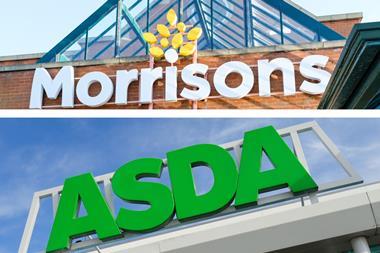
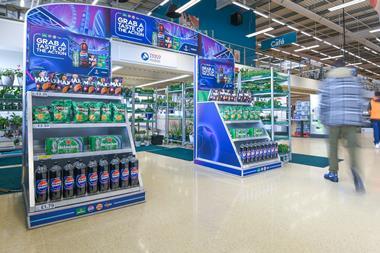


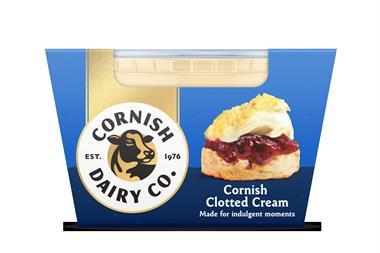
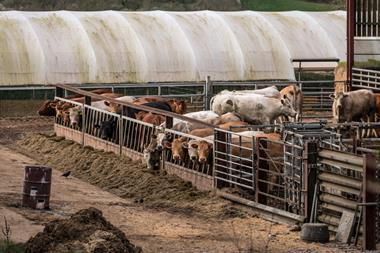
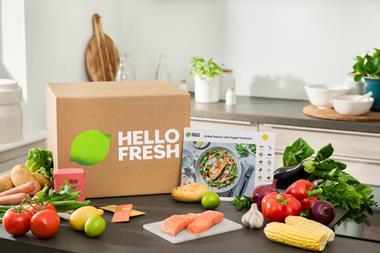
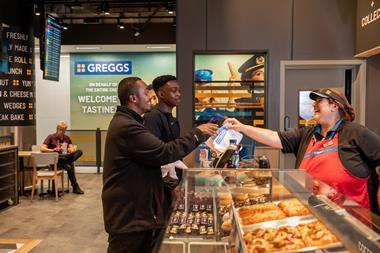

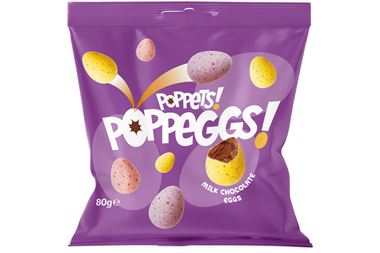
No comments yet